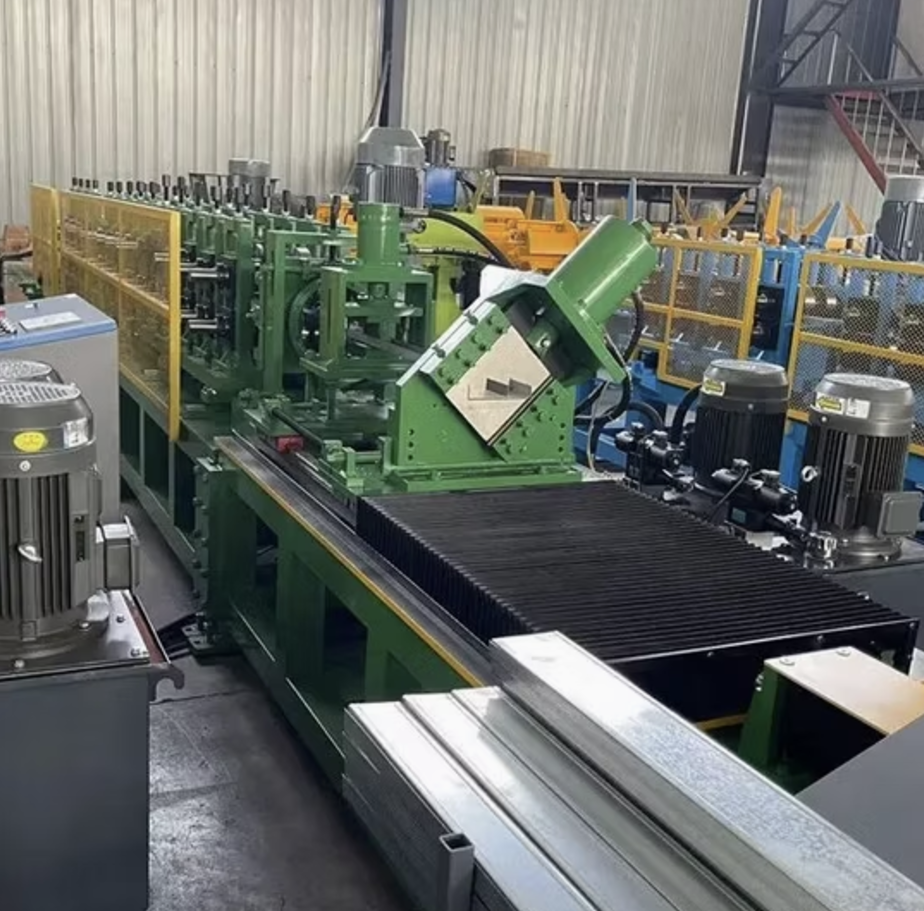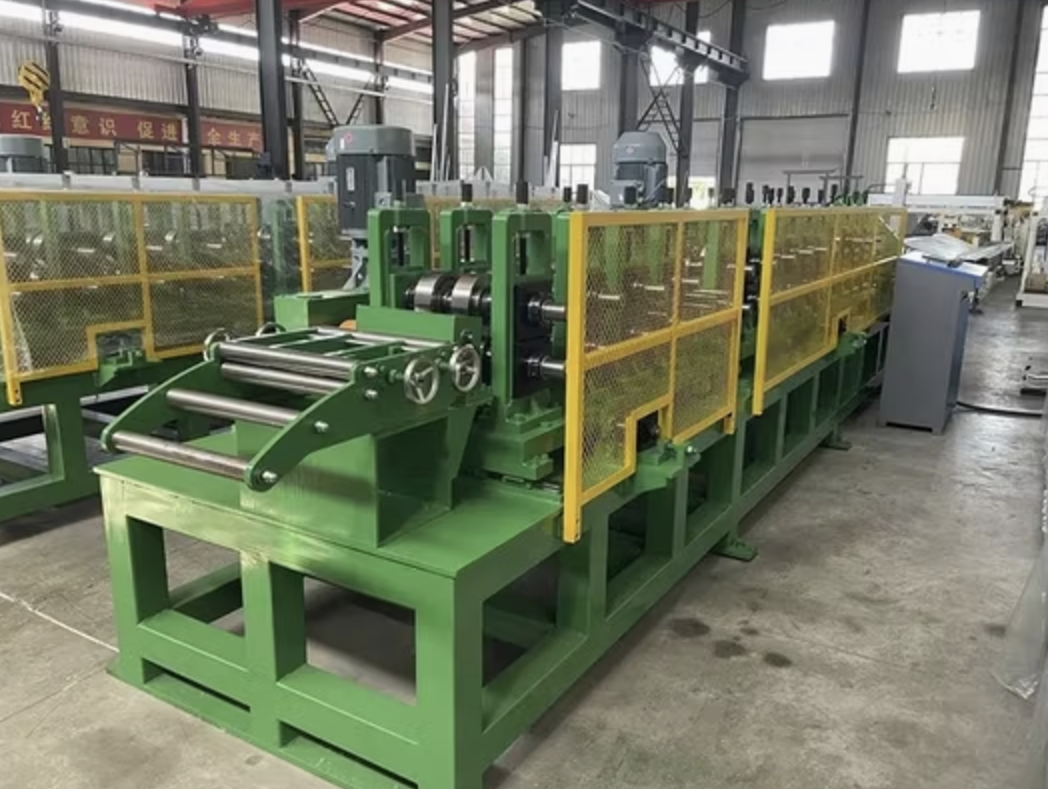To express an interest in this machine please submit the form below.

Not Sure What Machine You Need?
Select Your Profile, We'll Match It
Choose your desired profile drawing, and let Machine Matcher connect you with the best roll forming machine tailored to your needs.
Browse Profiles


A Drywall Roll Forming Machine is a specialized piece of equipment designed to manufacture drywall profiles, such as studs, tracks, and channels, which are critical components in modern construction. These profiles are used to build lightweight partitions and suspended ceilings, offering durability, ease of installation, and cost-effectiveness. The machine operates with high precision, ensuring consistency and quality across all produced profiles.
Drywall roll forming machines are tailored to meet varying market demands, including specific profile dimensions, material gauges, and finishes. They are equipped with automated systems, making them highly efficient and user-friendly.
| Component | Specification |
|---|---|
| Roller Materials | High-grade steel with chrome plating for durability and corrosion resistance. |
| Punching and Notching | Hydraulic punching and notching system for precise holes and cuts. |
| Servo Motors | High-efficiency motors for accurate profile forming and consistent performance. |
| Hydraulic Cutting | Integrated hydraulic system for clean, burr-free cuts. |
| Frame Size | Heavy-duty frame, customizable to specific customer requirements. |
| Motor Power | Typically ranges from 7.5 kW to 15 kW, depending on the machine configuration. |
| PLC System | Siemens or Mitsubishi PLC for automated control and real-time monitoring. |
| Machine Speed | Up to 40m/min, adjustable based on production needs. |
| Safety Guards | Transparent safety guards with emergency stop buttons for operator protection. |
| Profile Thickness | Supports materials from 0.4mm to 1.2mm. |
| Materials Supported | Galvanized steel, cold-rolled steel, or aluminum. |
| Power Supply | 220V/380V, 50Hz/60Hz, customizable for the UK market. |
Q1: What profiles can the machine produce?
The machine can produce a wide range of profiles, including studs, tracks, and channels. Customizations are available to match specific profile dimensions for the UK market.
Q2: What materials are compatible with the machine?
The machine works with galvanized steel, cold-rolled steel, and aluminum, with thicknesses ranging from 0.4mm to 1.2mm.
Q3: Is the machine suitable for the UK power supply?
Yes, the machine is configurable for 220V/380V power supply, which complies with UK electrical standards.
Q4: How long does installation take?
The installation process typically takes 2-3 days, depending on the complexity of the setup and site conditions.
Q5: What kind of maintenance does the machine require?
Regular maintenance includes cleaning the rollers, checking lubrication systems, and inspecting the hydraulic and electrical systems for wear and tear.
Q6: What safety features are included?
The machine is equipped with transparent guards, emergency stop buttons, and safety interlocks to ensure operator safety.
Q7: How does the hydraulic cutting system improve production?
The hydraulic cutting system ensures precise, burr-free cuts, enhancing the quality of the finished profiles and reducing waste.
Q8: Is training provided for machine operation?
Yes, manufacturers or suppliers typically provide operator training as part of the installation package.
Q9: Can the machine handle large-scale production?
Absolutely. With a speed of up to 40m/min, the machine is designed to handle high-volume production for commercial and industrial needs.
Q10: How much space does the machine require?
The machine’s size depends on its configuration, but a typical setup requires around 10m x 3m of floor space.
Copyright 2026 © Machine Matcher.